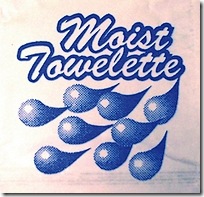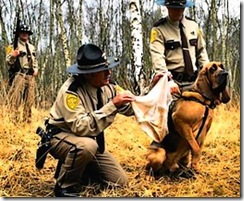Congress can’t agree on trimming a nickel from the federal budget, nor can they bring themselves to address any meaningful social issues, certainly not in a timely manner – but they’re determined to blow hell out of the Internet.
They must’ve assumed that lacking a face or political affiliation meant the Internet is fair game, yet in the face of recent public backlash, they’ve had to shelve SOPA and PIPA, the legislation meant to placate the RIAA, Hollywood, and every other media entity struggling with Internet-based change.
Senator Bob Corker (R-TEN) is proposing they do away with our beloved tax free online shopping, by introducing the Marketplace Fairness Act (S-1832) which will require any vendor whose sales are in excess of $500,000 to collect the taxes owed the state where the sale originated.
Meaning, I’ll be required to pay California sales tax at any and all “large” retailers.
SMALL SELLER EXCEPTION.—A State shall be
authorized to require a remote seller, or a single or consolidated provider acting on behalf of a remote seller, to collect sales or use tax under this Act if the remote seller has gross annual receipts in total remote sales in the United States in the preceding calendar year exceeding $500,000.
While this doesn’t seem horribly one-sided, Congress sure seems bent on eliminating any tiny perk us 99%’ers enjoy – and we’re supposed to agree with their vision under the guise of something heartwarming like “fairness.”

“Fairness” would be sending all those mortgage company execs to jail, or all the bank CEO’s, as most committed securities fraud by lying about the health of their institution while the Fed covered their hidden shortfall with our taxes. Fairness might even mean ensuring Senators and Congressmen go to jail for insider trading as I would, or giving me less jail time for downloading a pirated Michael Jackson song than you gave the Doctor that killed him …
In recent history, fairness is just bullshit word meaning “everybody but me” and doesn’t quite mean what it once did.
I’m sure the few large establishments our tiny industry has spawned will not welcome the requirements and paperwork, but it should put the “Big Box” retail names in a bit of a housekeeping disadvantage, compared to the smaller local shop.
… and it will spur some employment, given that each larger entity will have to increase the front office staff to handle the 8000 different tax rates and the quarterly filing of reams of triplicate paperwork owed each of those municipalities.
In these harsh economic times, and with our quaint little hobby still flirting with the thousand dollar fly rod, I can’t see it as a means to persuade me to buy this year or even next. The nature of the Internet makes Europe and Asia just a UPS truck distant, and with the Euro plummeting earthward, I have a compelling argument for me to move more of my angling transactions offshore.
There is a vibrant line of fly fishing products outside the US and choices are surprisingly familiar; Rise and Echo rods are Korean or Chinese, Hardy & Greys, Loop, Mustad-Tiemco and the rest of the hook industry is offshore, Airflo lines and scads of other fly shop standbys are of non-US origin.
While understanding the intent of the legislation and acknowledging the idea was technically sound, my dim view of all this stems from the chaos that is the federal and state budgets – and how both may boost our tax rates to cover shortfalls or simply to service the national debt. Most states are already arguing over many tax increases as well as cuts in existing services to paper over the loss of property taxes, and the holes in their finances that’ll result once the federal government trims its spending.
Once all the dust settles many states could be facing a sales tax of 10% to 12%, and with the world vying for hard currency to lessen the blow to their respective economies, the dispossessed little guys may come to realize the Internet contains more than the US, just as I did.
“Our business and the sport of fly fishing depend on healthy specialty fly shops. They are critical to growth in revenue and jobs,” said K.C. Walsh, President of Simms. “This legislation will close a critical loophole that has given an unfair advantage to online retailers.”
-via Angling International, February 2012 (Issue 49)
On the surface the proposition is a noble one, but I can no longer trust my elected officials to have my best interest at heart, and therefore I trust nothing spawned of them at face value.
I kept faith with the dictionary’s version of “fairness” – continuing to pay my mortgage payments regardless of the value of my home, continuing to pay state and federal taxes no matter which Fortune 500 company was bailed out – and at no time did I succumb to the neo-fairness as espoused “within the Beltway” and the aging demigods that haunt those marble corridors.
With the fly fishing industry poised to follow Redington and go direct to the consumer, it’s certain that all the paperwork and staff needed to accommodate this new legislation is liable to cool their ardor somewhat.
Which may be why Simms joined with Amazon.com and Walmart as being in favor of the legislation. I find those entities strange bedfellows to cozy with given they’re the self-same retail giants we’re trying to keep from swallowing the local shops …
All municipalities woo the “Bricks and Mortar” companies to locate stores within their districts. Deal sweeteners like property tax forgiveness and other waivers can be agreed upon to convince retailers to erect stores and hire locally. Online vendors get no such breaks, yet will have to pay the same taxes as if they did.
Some pundits are convinced it’s the springboard for a national sales tax, others suggest it’s anything but fair, and the rest suggest Amazon and its ilk will cash in big …
I lack the answer, and outside of old fashioned suspicions will be the first to admit a lack of credibility. We’ve seen this so many times and been promised it was other than a wolf in sheep’s clothing, that I doubt the “enemy” would be in such a rush to back the bill if the legislation actually levels the playing field.
 Simple housekeeping post, nothing to shrink away from …
Simple housekeeping post, nothing to shrink away from …








 HR1505 is an interesting tidbit
HR1505 is an interesting tidbit